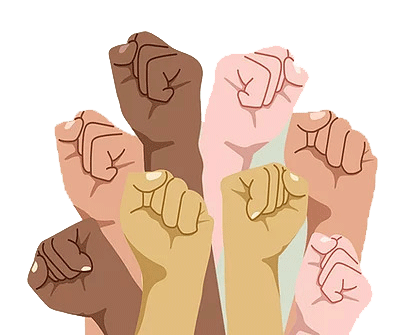DECRIMINALISATION OF SUICIDE
“Close to 800,000 people die due to suicide every year, which is one person every 40 seconds.”- (WHO)
Despite the correlation between mental health and suicide attempts, suicide as per many cultures, religions and even laws is considered worthy of further punishment. In the Indian subcontext, the history of suicide legislation and the fight of activists, mental health professionals, organisations against the criminalisation of suicide still remains turbulent.
So, is attempting to suicide a crime in India? Well, it’s abit complicated.
While we learn through the following timeline the events and instances that led to the current status quo, it’s important to note that without the consistent efforts by mental health professionals, activists, and organisations tihis journey would have spanned far more years than it already has.
1861: Section 309 of the Indian Penal Code drafted by The United Kingdom states -“Attempt to commit suicide – Whoever attempts to commit suicide and does any ad towards the commission of such offence, shall be punished with simple imprisonment for a term which may extend to one year (or with fine, or with both)”
1961: The United Kingdom, which framed the Indian Penal Code, decriminalises suicide
1971: Sec. 309 IPC – “Harsh and Unjustifiable” –
In its 42nd report, The Hon’ble Law Commission of India recommends the repeal for Sec.309 citing a reference from the Dharmashastras
& Suicide Ad, 1961 of England.
1972: The proposed bill for the omission of SEC 309 IPC, 1860 REJECTED
The bill is introduced in the Rajya Sabha (The Council of States). Despite the admission that the law is harsh and that a person who participates in the ad of suicide deserves sympathy (help) rather than punishment,the bill is rejected.
1986: “Suicide or an attempt to suicide is not a feature of normal life. It is an incident of abnormality or of an extraordinary situation or of uncommon trait personality”-as stated by the Hon’ble Bombay High Court in Maruti Shripati Dubai v. State of Maharashtra.
1994: “lt is a cruel and irrational provision1 as it may result in punishing a person again(doubly) who has suffered agony and would be undergoing ignominy because of his failure to commit suicide” – as stated by the Hon’ble Supreme Court on the Sec 309 of IPC in the case of
P. Rathinam v. Union of India.
1996: Ten Steps Backwards – Supreme Court overruled its own Judgement The Hon’ble Supreme Court of India in Gian Kaur v. The State of Punjab affirmed that Right To Life in Article 21 is not inclusive of the Right to Die thereby establishing Sec 309 as constitutional. As a consequence, the Hon’ble Law Commission recommended the retention of Sec 309.
2003: Inception of MHF (India)
26.11.2010: MHF vides an RTI application
MHFI in one of its most substantial and first advocacy projects vides an RTI application to the Ministry of Health and Family Welfare, Government of India. MHFI poses two essential questions regarding the existing legislation on suicide – First, whether there has been any proposed legislation or recommendation made by the Parliamentary Committee for repealing or modifying Sec 309 of IPC. Second, data collected by the government regarding individuals who have attempted suicide in the past 5 years accompanied by data on the relation between these suicide attempts and the mental health state of the individuals.
15.12.2010 Standstills, Transferals and Pushing Further
Whi le the RTI application gets transferred to the National Crime Records Bureau, MHF is notified that neither a legislation proposal has been in the offing nor the Parliamentary committee has made any recommendations regarding the decriminalisation of suicide. As a result, MHF vides another RTI application enquiring data on people who have sought to suicide in the last 14 years. Soon, it is notified by the National Crimes Record Bureau that the bureau doesn’t collect any data on suicide attempts in reference to the November 2010 RTI application.
17.1.2011 Relentless fight for the decriminalisation of suicide
MHF vides an RTI eliciting a response from the Ministry of Law and Justice, Government of India regarding whether the Ministry has accepted the recommendations of the 210th Report of the Hon’ble Law Commission, and whether any proposed legislation is in the offing to repeal or modify Section 309 of IPC.
27.01. 2011: The administration of the State Governments and Union Territories is called upon Due to the Indian Penal Code and Code of Criminal Procedure being under the Concurrent List of the Seventh Schedule to the Constitution of India, MHF is notified that further comment has been sought from the State Government and Union Territories
March 2011: “We are of the opinion that although Section 309 Indian Penal Code (attempt to commit suicide) has been held to be constitutionally valid in Gian Kaur & case (supra), the time has come when it should be deleted by Parliament as it has become anachronistic. A person attempts suicide in a depression, and hence he needs help, rather than punishment. We, therefore, recommend to Parliament to consider the feasibility of deleting Section 309 from the Indian Penal Code.” – states The Hon’ble Supreme Court of India in Aruna Ramchandra Shanbaug vs. Union of India.
14.12.2011: 25 State and Union Territories Administration agree to the Law Commission’s recommendation for repealing and abolishing Sec 309 of the Indian Penal Code as stated by the government’s learned counsel Mr Jatan Singh.
2013: Mental Healthcare Bill is introduced in the Rajya Sabha to repeal the mental Healthcare Act 1987 and effectively decriminalise the attempt to suicide. With the elections of 2014 changing the ruling party,the discourse for the decriminalisation of suicide continues.
2016 & 2017: A Victory?
Mental Health Care Act is passed following its proposal that any individual who attempts suicide will naturally be considered to be experiencing some form of mental dis tress. The said individual would hence not be subjected to prosecution by the state but be given appropriate treatment.
Sounds good, right? But here's the catch!

